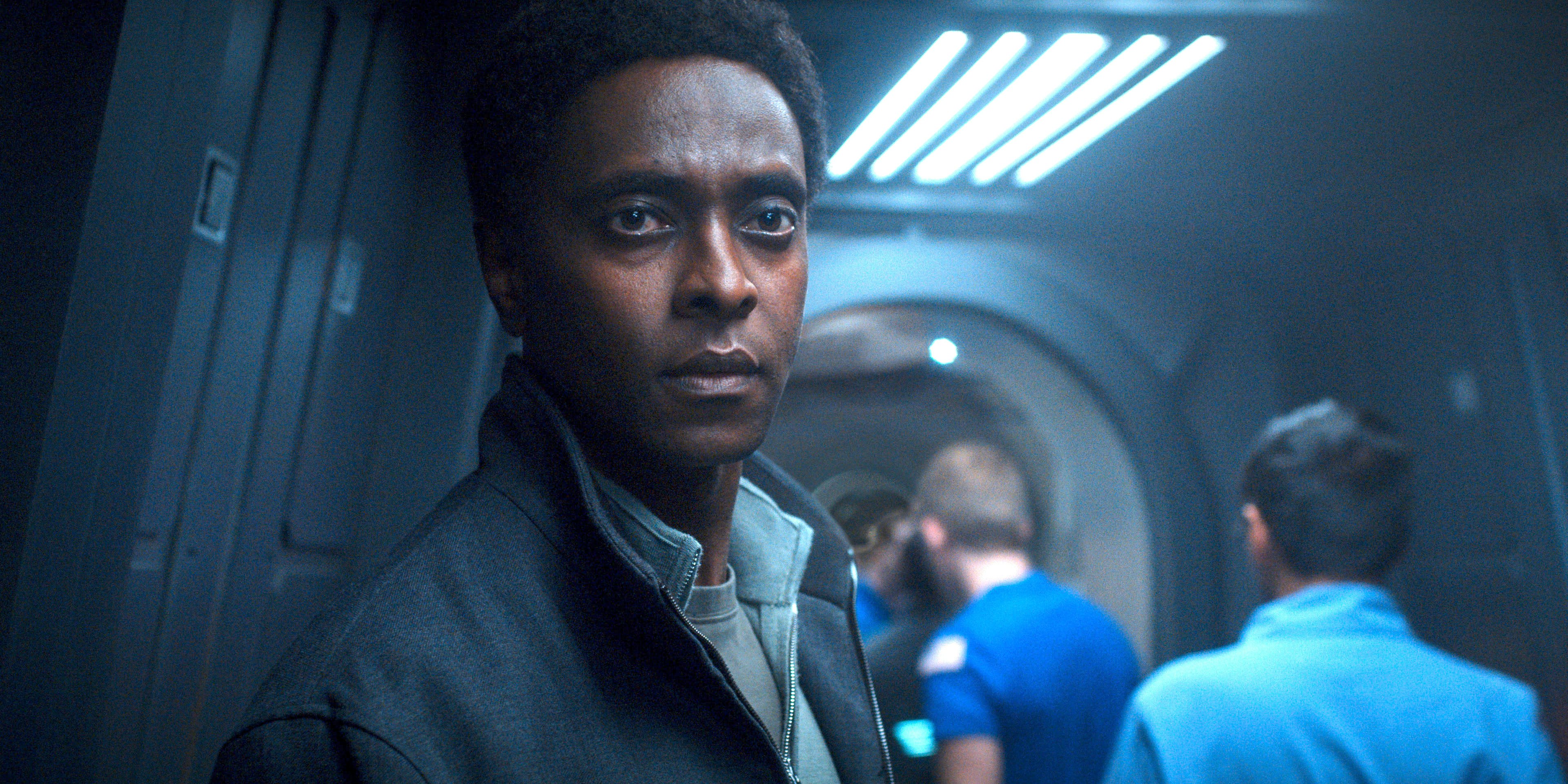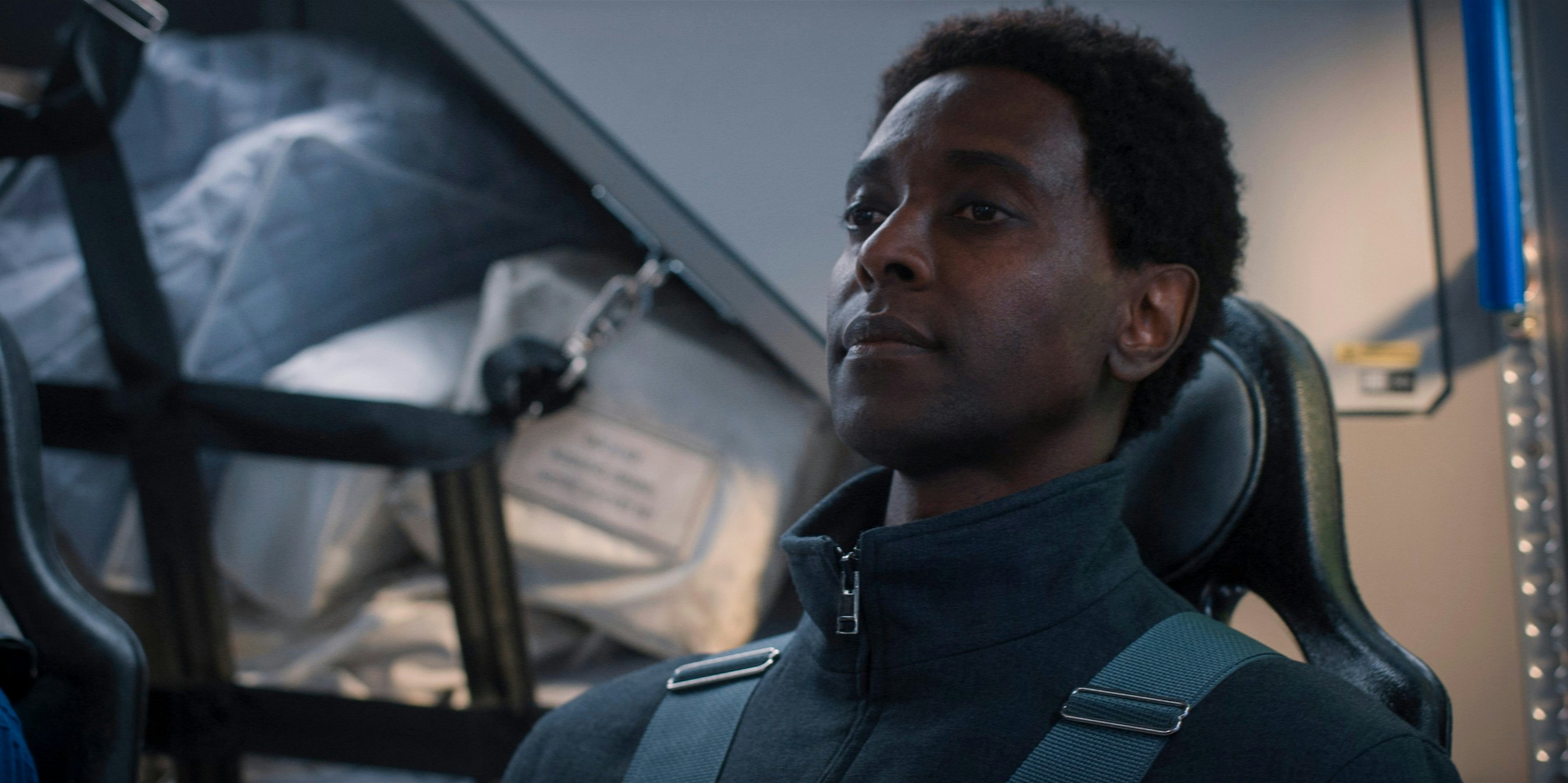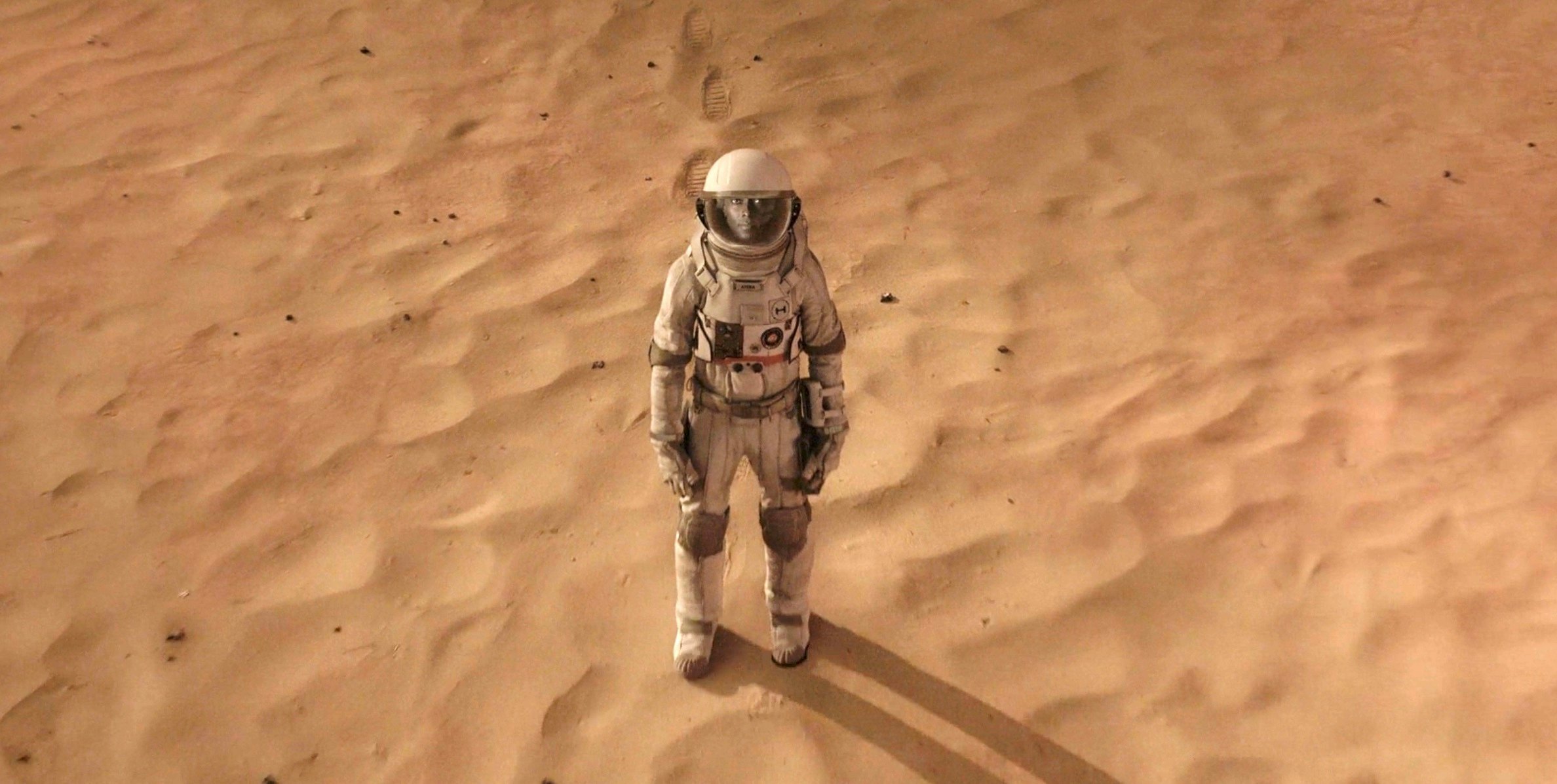
Elon Musk claims he wants to help humanity settle Mars. What if he already had? In For All Mankind’s alternate timeline, the history of spaceflight in the 1990s and 2000s is utterly redefined by an independent space agency known as Helios. The parallels to SpaceX and Blue Origin are clear: a billionaire creates a vision for space exploration based on profit and supposed idealism. And although he’s very much not Elon Musk, Dev Ayesa — played by X-Men legend Edi Gathegi — is a pivotal and controversial figure in this parallel and somewhat better timeline.
Everything that happens in the For All Mankind Season 4 finale is because of Dev, and he’s the last character we see when the show flashes forward to a new decade. Here’s why this morally duplicitous space mogul is both horribly realistic and a little aspirational. Spoilers head.
When Dev breaks the Helios worker’s strike on Mars in Episode 7, “Crossing the Line,” he appears, at first, to be a villain. He takes advantage of the economic desperation of the striking workers and creates a situation where solidarity and the union can no longer function. Naturally, Ed, Miles, and Sam are furious. But then Dev reveals his endgame: capturing the Goldilocks asteroid for the people of Mars, rather than the people of Earth.

So just like Musk has labor controversies with SpaceX and Tesla, Dev’s Helios politicking is both Machiavellian and perversely idealistic. Season 4 concludes with Dev standing triumphantly on the surface of Mars, looking up at the captured asteroid. He’s the mastermind of a scheme both capitalist and a middle finger to Earth’s markets.
There’s no clean analogy for this with Jeff Bezos or Elon Musk. For All Mankind presents an ethical paradigm we’ve never experienced: at what point would people on another planet start worrying that their hard work only benefits people living on Earth? Season 4 tackled this question in Episode 2, “Have a Nice Sol,” and continued to dig into the realities of working-class people in space.
Currently, scholars like Erika Nesvold and NASA administrator Pam Melroy are working on the challenges of creating concrete international ethics for space exploration, and getting ahead of labor policies that may start to exist in the next 20 years. In For All Mankind, those hypotheticals are already in play and are presented with painful realism. Although the series is primarily optimistic, the motivations of all the characters are rendered the way they would be rendered in our timeline.

Dev wants to build a better future for the people on Mars, but he’s partially influenced by his horrible relationship with his family on Earth. One of the most important episodes of the series comes in Episode 5, “Goldilocks,” when Kelly Baldwin insists on bringing her son with her to Mars, and Dev tearfully agrees.
You can easily imagine a different space mogul being opposed, but Dev creates a very human parental status quo within his company, not only because it’s the right thing to do, but because it benefits him and confirms his biases. He’s not a monster and doesn’t need the world to believe he’s right. He just wants to live on Mars forever, for personal and professional reasons.
So, even though Dev is a cutthroat businessman with a planet-sized ego, as For All Mankind’s answer to Elon Musk, he comes across as a kind of anti-cautionary tale. Yes, Dev is corrupt, but we’d be much better off if Dev were running SpaceX or Blue Origin. Somehow, it’s hard to imagine this guy obsessed with blue checkmarks or whether Eggo waffles have gone woke. Unlike Musk, Dev really is above all the petty nonsense, and truly wants a better future. And if that benefits people other than himself, he’s for that too.







